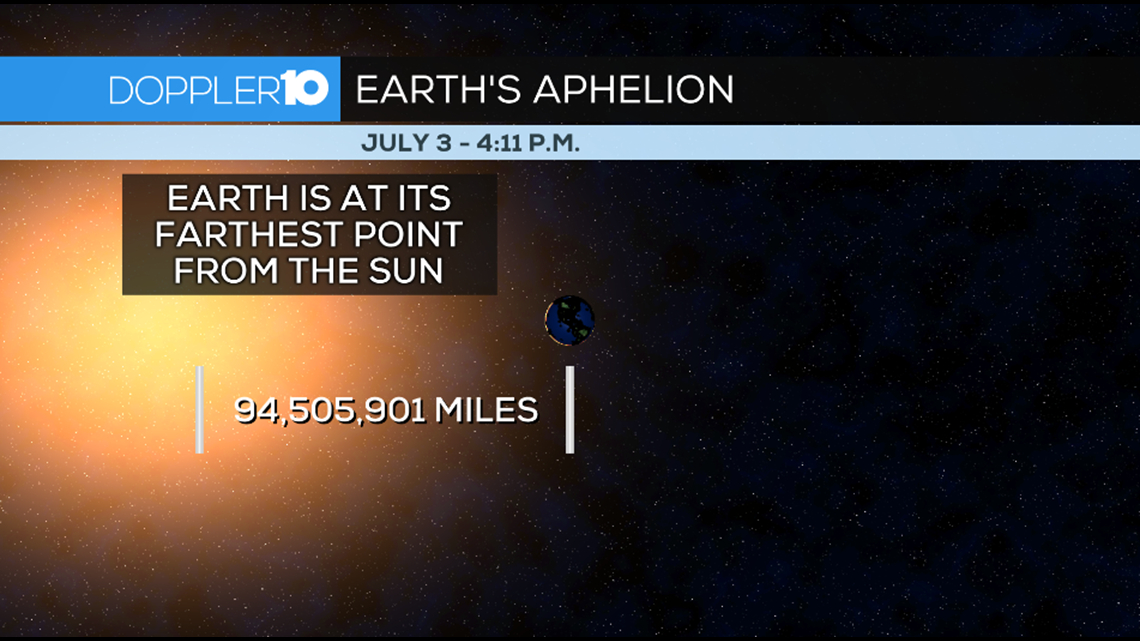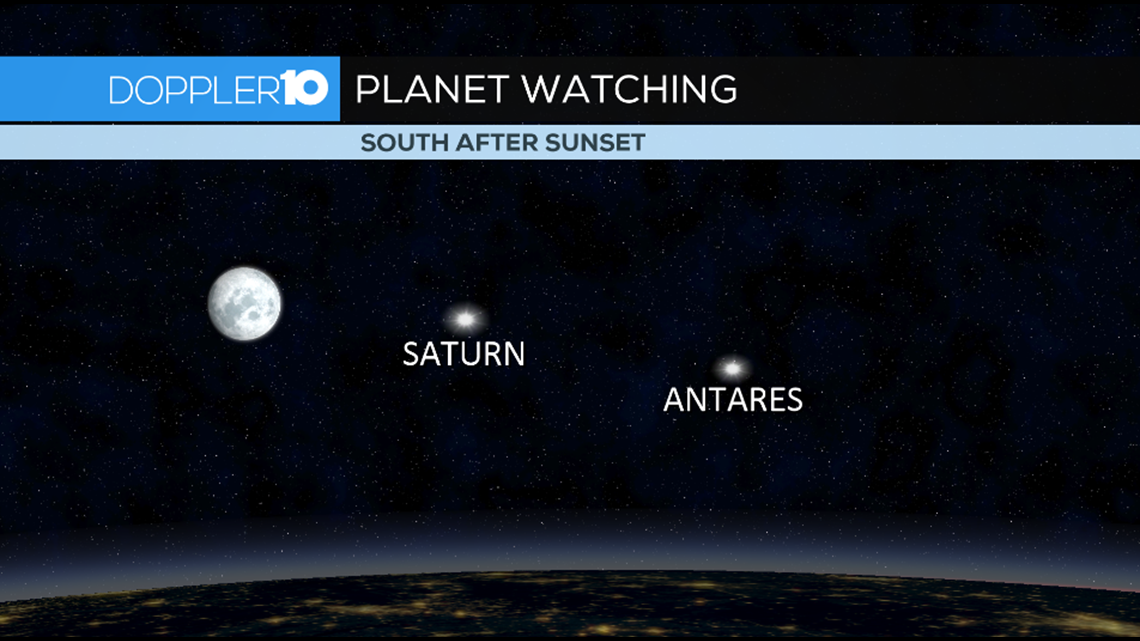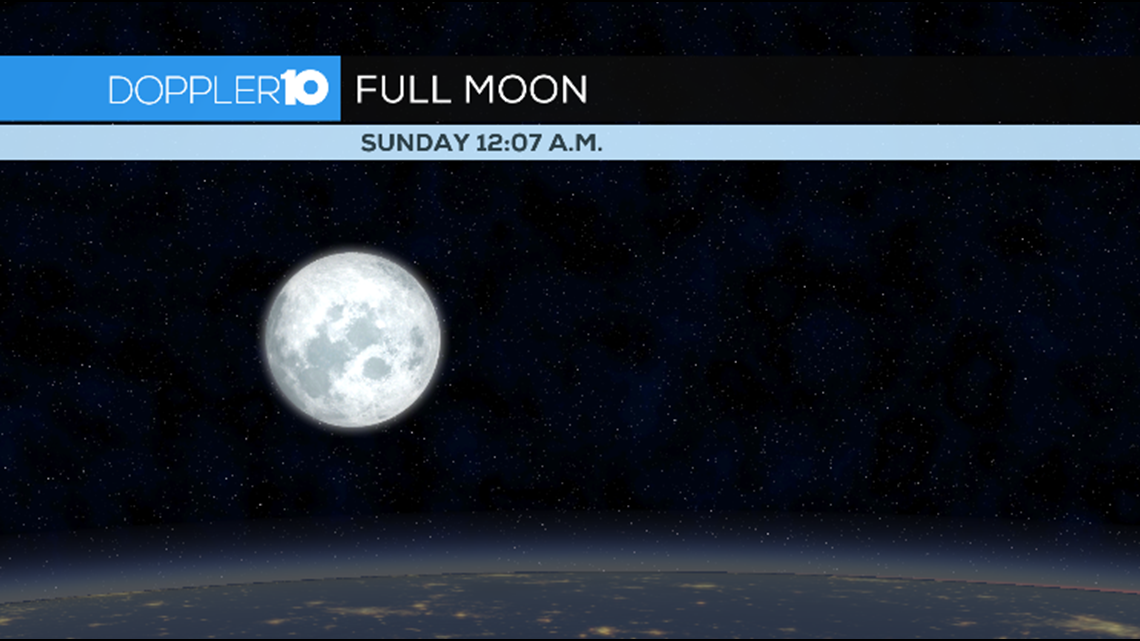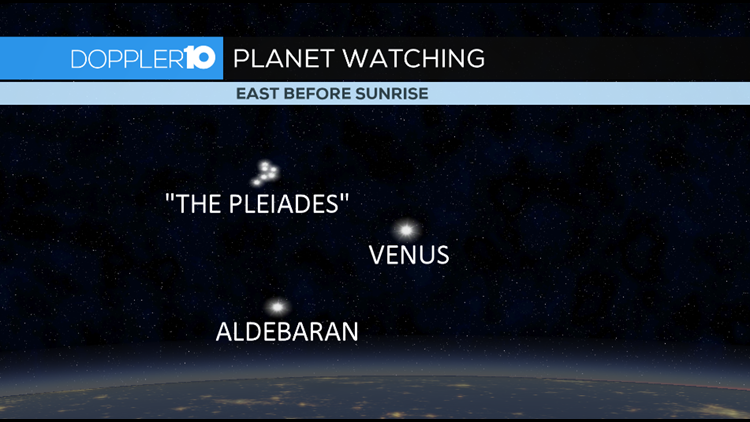The week starts out with the morning star in the eastern sky during the predawn hours on Sunday. Venus will be low in the east near constellation of Taurus.
The “eye of the bull”, of Aldebaran will be lower in the horizon just left of the planet and the star cluster known as “the Pleiades” won’t be far off.


We’ll reach an astronomical milestone this week as well. On Monday at 4:11 p.m. Earth will reach it’s aphelion. Planetary orbits aren’t circular, they’re elliptical (even though Earth’s orbit is very close to a circle).
Because of that fact, there are times when we are closer to the sun and times when we are farther away from it. On Monday, at more than 94 million miles from Earth, the sun will be at its farthest point from us for the year.
This also underscores the fact that the Earth’s tilt on its axis, and not its distance from the sun, causes the seasons.


On Friday night use the nearly full moon to help you find Saturn. It’ll be just to the right of the brightening moon and will be hard to miss.


The moon is officially full on Saturday night (actually Sunday morning at 12:07 a.m.). This month’s full moon is known as the Full Buck Moon because this was traditionally the time of year when buck’s antlers were growing strong.
It’s also known as the Full Thunder Moon because of the frequency of thunderstorms this time of year. Happy hunting!



